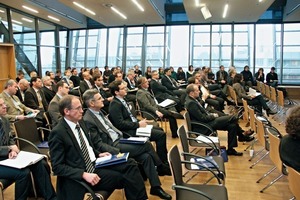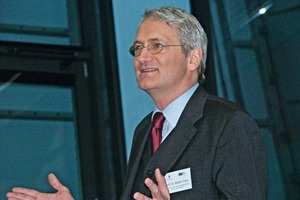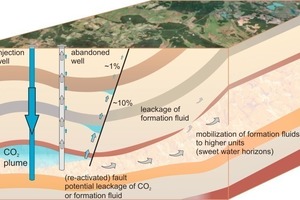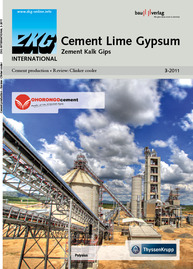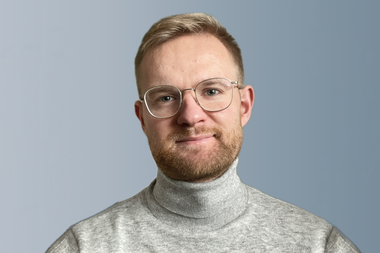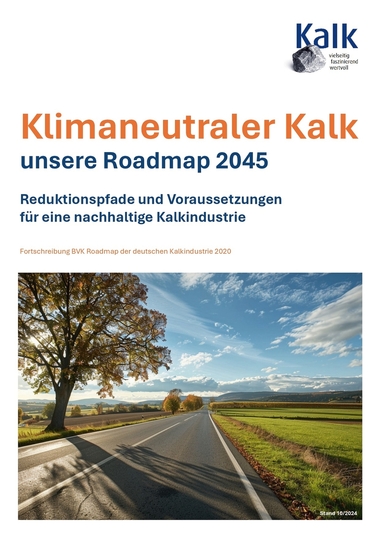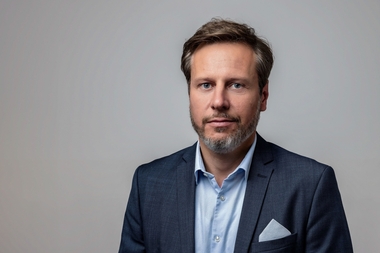Carbon capture and storage
11th KBU Colloquium on Industry and Environmental Law, Aachen/Germany (25.01.2011)More than fifty specialists met in Aachen (Fig. 1) to get the latest information on Carbon Capture and Storage (CCS). A new version of the draft bill for an Act of Parliament on the demonstration of permanent storage of carbon dioxide (the “Carbon Dioxide Storage Act”), for EU Directive 2009/31/EC, to be implemented by June 25, 2011, has been announced, inter alia, in Germany. No cabinet decision had been announced at the time of the colloquium, however.
The series of lectures by invited speakers began after an introductory speech by Prof. Dr. Walter Frenz (Fig. 2), of the RWTH Aachen University of Applied Sciences. Many papers focused on the first draft bill and its amended version. Significant new features of the current version include the restriction of CCS projects in the form of demonstration projects, and the requirement for the evaluation of competing technologies. Financial support for projects is available only up to 2015 (deadline for submission of all application documentation). An evaluation period up to 2017, during which the further steps possible and necessary are to be defined, will follow. Development in Germany has been slow, whereas CCS projects have reached a much more advanced stage of development in many parts of the world, including America.
In his paper on the general boundary conditions for CO2 storage, Prof. Dr. Christian Pielow, of the Ruhr University, Bochum, pointed out that CCS is regarded in the most recent drafts as a “bridging technology” intended to provide climate-friendly support on the road from fossil to alternative energy sources. His address closed with the question of whether the indubitably massive financial, logistical and political input was worthwhile for such a “transitional” technology, however. Frank Thiemler, of the North Rhine-Westphalia Ministry for Climate Protection, Environment, Agriculture, Nature Conservation and Consumer Protection then stated the viewpoint of a German federal state, advocating that not only the power generating plants should be included in the development of CCS technologies, but also the cement, steel and chemical industries.
Senior Ministerial Counsellor Peter Franke, from the Ministry of Economic Affairs, Energy, Construction, Housing and Transport, then ascertained that interest in the utilisation of the earth‘s underground space is growing constantly and universally. Some kind of “underground planning policy” may be necessary, he noted, in order to provide an instrument for future co-ordination of fair and structured use of underground space. Dr. Andreas Wasielewski, from the Ministry of Agriculture, the Environment and Rural Areas of the Federal State of Schleswig-Holstein, then reviewed the reasons for his state’s more sceptical view of CCS. Great scepticism on the part of the population, combined with an unequivocal political stance rejecting CCS, and the competing potentials of geothermics and storage of resources, mean for him that CCS should be opposed by all possible means. The fact that the law, in the context of regional planning policy, provides for the federal states to exert their influence in this field does not mean that a prohibition of CO2 storage on the basis of state planning is a real possibility, however.
PD Dr. Michael Kühn, from the GFZ German Research Centre for Geosciences, Potsdam, then spoke on CO2 storage at the pilot facility in Ketzin (Fig. 3). Since the start of pumping on June 30, 2008, no less than 45 000 t of CO2 have been pumped underground at Ketzin from two 50 t capacity silos, which are continuously refilled by road deliveries. Surface measurements performed prior to pumping operations indicate that around 40 000 t of CO2 escape naturally and annually from organic sources in the upper decimetres of the soil, however. This value remains the same since the start of sequestration. Monitoring is taking place via two observation boreholes. Accompanying seismic and geoelectric tomography studies have made it possible to visually display the CO2-filled porosity cavities of the sandstone storage formation. Geochemical monitoring and reservoir models augment the range of investigation instruments. Kühn stated that CO2 storage on an industrial scale should be possible on the basis of current scientific knowledge. Food grade CO2, supplied in liquefied form and then, after heating, pumped underground as a gas is still currently used at Ketzin. However, CO2 from the Schwarze Pumpe power plant’s pilot separation installation is planned for application in the near future. Kühn‘s concluding suggestion was to site a CO2 storage facility under the German parliament building, to induce the politicians to send out positive signals for – in his view – a safe and reliable technology.
Prof. Dr. Bernd Dammert, of the Dr. Dammert & Steinforth firm of attorneys, devoted his address to the subject of “Storage-related utilisation conflicts”. Not only geothermics, but also water utilisation and hydrocarbon prospecting may compete with CCS. In the former case, only deep-level geothermics exhibit a potential for conflict. With respect to water utilisation, Dammert drew attention to the excellent existing store of data, which would provide a good basis for a quantitative assessment. In the hydrocarbons field, preliminary phases of a project in the Altmark region, in which a gas producer plans both stimulation of existing reservoirs using CO2 (enhanced gas recovery, abbreviated “EGR”) and pressurisation, have already started. Dammert’s opinion was that conflicts are more likely in case of new prospecting and production projects.
Prof. Dr. Walter Frenz, presenting the concluding paper, spoke on “The anticipatory effect of the CCS directive”. He theorised that the decision on approval applications would need to be deferred until the possible enactment of the Carbon Dioxide Storage Act, since neither a direct nor an anticipatory effect could be assumed with certainty. However, the prohibition of obstructing legislation, under which no regulations which could seriously place in question the achievement of the aim specified in the directive may be enacted during the implementation period, applies here.
The participants were presented with an extremely comprehensive examination of the subject of CCS in Germany, from both a legal and a geotechnical viewpoint. Although there are potential storage sites in Germany, in the extensive North German Basin region, for instance, the country as a whole harbours a tendentially more sceptical attitude to CCS. Unanswered questions concerning safety, sustainability and the necessary long-term maintenance measures also contribute to this.
The great majority of the papers have been published in the proceedings, which can be ordered under the title “CO2 Sequestration (CCS)”, Volume 124 in the GDMB series of publications. The 12th Colloquium on Industry and Environmental Law, on the subject of “Energy Supply Routes”, is to be held, again in Aachen, Germany, on January 24, 2012.
www.gdmb.de

